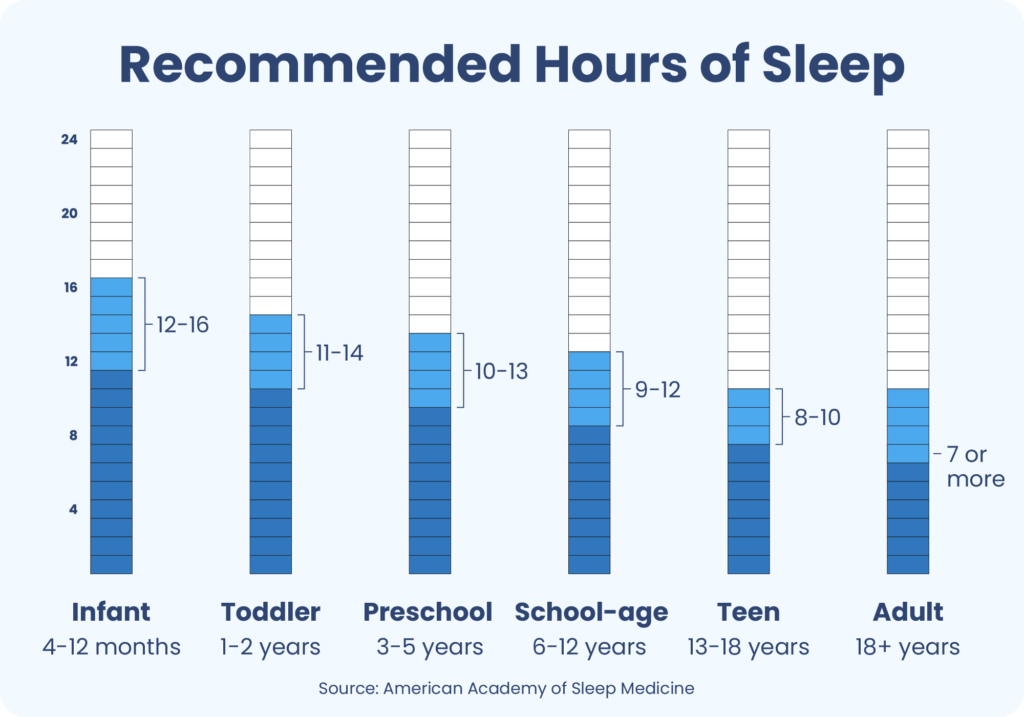

Jumping into bed after a long day at work and a nice shower is absolutely wonderful, especially when we’re tired. However, even if we know how important sleep is for our well-being, we don’t necessarily sleep as many hours as our body needs to recuperate from the day.
Wanting to make the most of our quiet evening, reading or insomnia are common reasons for us to push back bedtime. To set the clocks right and sleep well again, the experts devised a chart that indicates how long you are supposed to sleep according to your age. Thus, we’ll all want to sleep like babies soon enough.
How long must we really sleep?
People lack sleep, that’s a given. The National Sleep Foundation conducted a study that revealed that people sleep less than seven hours a night, which is largely insufficient. When we are teenagers, we pull all-nighters without thinking of the consequences. When we’re adults, it’s clearly not the same story!
Charles Czeisler, president of the National Sleep Foundation, explained, “It is important to be aware of these numbers, because we spend an average of a third of our lives asleep. Our health depends greatly on the quality and quantity of sleep. This remains an essential topic that influences our lifespan.”

Even though we don’t necessarily follow these rules every night, we are supposed to sleep between 8 and 10 hours as teenagers. When we become adults, this decreases slightly.
For adults who still study, the National Sleep Foundation advises 9 hours per night. For active adults, the recommended length of sleep is between 7 and 9 hours.
If one follows this logic, we should sleep even less as we age. However, scientists advise sleeping 7 to 8 hours daily as a senior. In fact, seniors should sleep more, especially if they feel the need to because their bodies are prone to getting tired quickly.
The effects of sleep on well-being
Getting the right amount of sleep is important not only for our physical health but also for our mental health. Lack of sleep can lead to numerous diseases, including:
- Diabetes
- Dementia
- Heart conditions
Sleeping is essential for resting the cardiovascular system. Thus, if we don’t rest enough, our hearts and arteries tire more quickly. Moreover, being tired because we lack sleep affects our mental health. Lack of sleep can cause depression, anxiety and mood disorders.
Sleeping well helps with weight loss
When night falls and our body dives into deep restorative sleep, it secretes two hormones that help weight loss. The first one is leptin. Leptin induces fullness and, thus, reduces hunger. It also activates the metabolism, which means your body is less likely to store fat.
The second hormone that helps with weight loss and that the body secretes during deep restorative sleep is melatonin. This one doesn’t just take us to dreamland; It also stimulates fat-burning during our sleep.
In the end, we jump into bed for a good cause!













